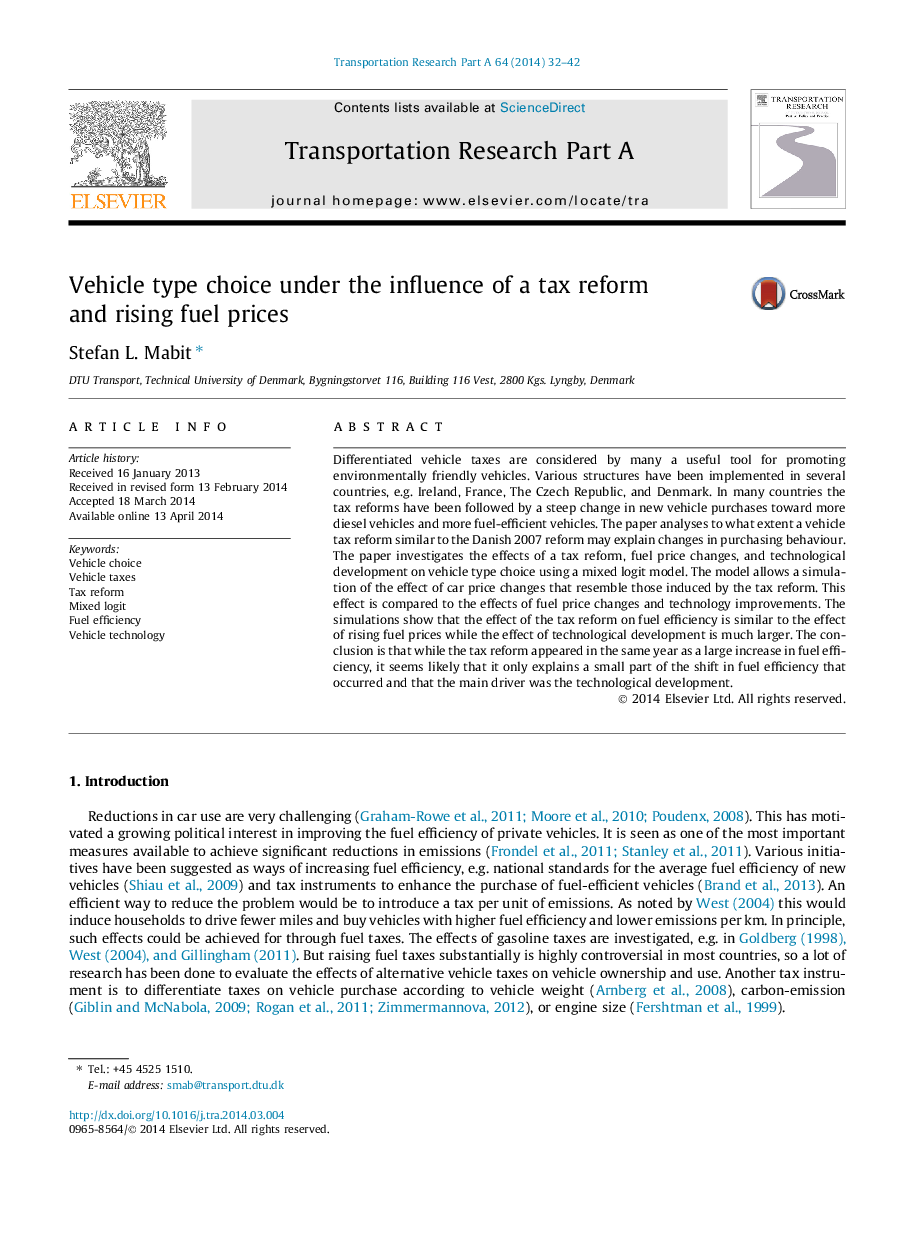| Article ID | Journal | Published Year | Pages | File Type |
|---|---|---|---|---|
| 6781780 | Transportation Research Part A: Policy and Practice | 2014 | 11 Pages |
Abstract
Differentiated vehicle taxes are considered by many a useful tool for promoting environmentally friendly vehicles. Various structures have been implemented in several countries, e.g. Ireland, France, The Czech Republic, and Denmark. In many countries the tax reforms have been followed by a steep change in new vehicle purchases toward more diesel vehicles and more fuel-efficient vehicles. The paper analyses to what extent a vehicle tax reform similar to the Danish 2007 reform may explain changes in purchasing behaviour. The paper investigates the effects of a tax reform, fuel price changes, and technological development on vehicle type choice using a mixed logit model. The model allows a simulation of the effect of car price changes that resemble those induced by the tax reform. This effect is compared to the effects of fuel price changes and technology improvements. The simulations show that the effect of the tax reform on fuel efficiency is similar to the effect of rising fuel prices while the effect of technological development is much larger. The conclusion is that while the tax reform appeared in the same year as a large increase in fuel efficiency, it seems likely that it only explains a small part of the shift in fuel efficiency that occurred and that the main driver was the technological development.
Related Topics
Physical Sciences and Engineering
Engineering
Civil and Structural Engineering
Authors
Stefan L. Mabit,
